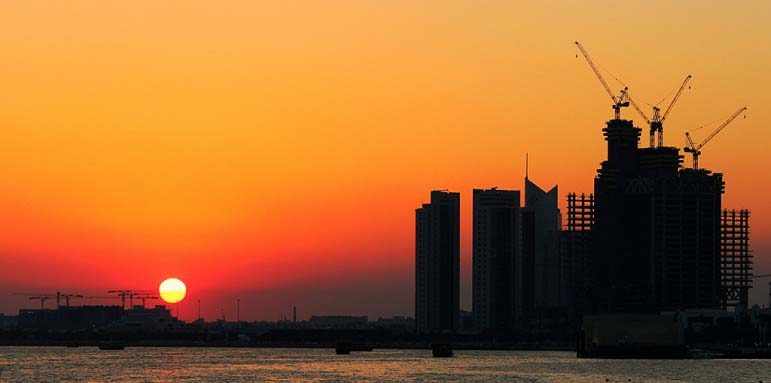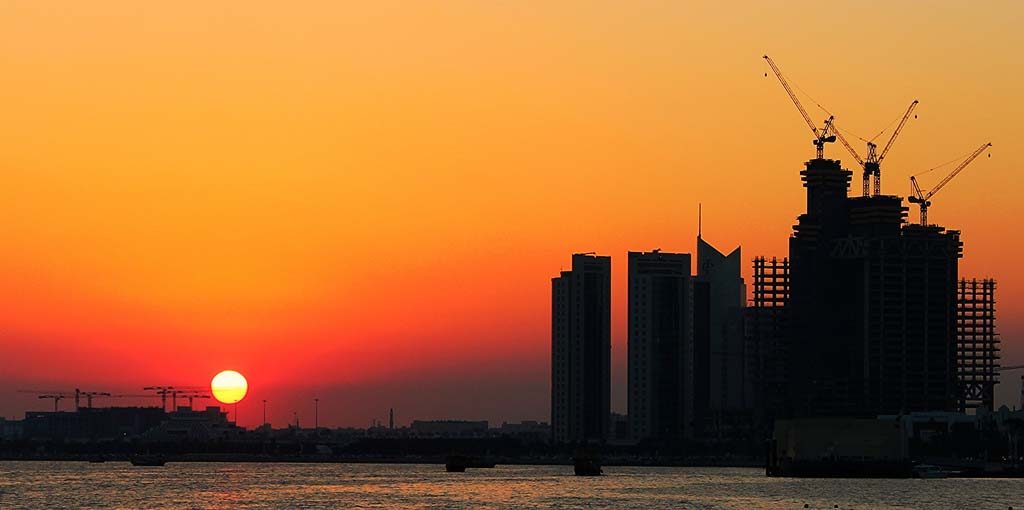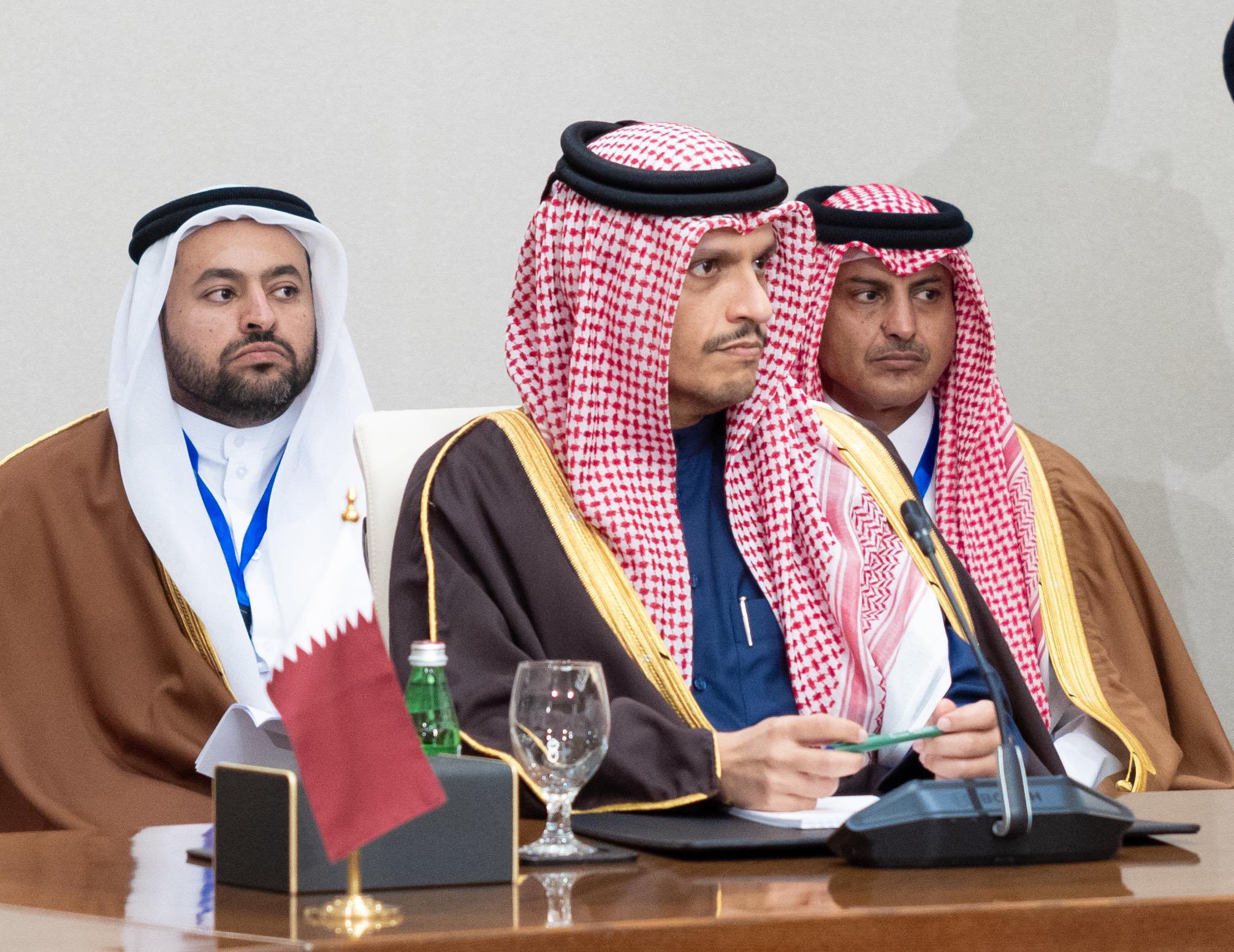
Following a week-long visit to Qatar, a United Nations human rights expert has added his voice to a chorus of calls for reform in the country.
More specifically, François Crépeau, the UN special rapporteur on the human rights of migrants, recommended the abolishment of the restrictive sponsorship (kafala) system and said workers should freely be allowed to change employers.
During the last eight days, Crépeau met with numerous workers in labor camps, shelters, deportation centers, the central prison and on the streets. His visit, which ended with a press conference this afternoon at the UN’s regional office in West Bay, also included meetings with local government officials, diplomats and members of Qatar’s National Human Rights Committee.

Along with making it easier for migrants to switch sponsors, Crépeau called for the scrapping of the current exit permit system, suggesting it be replaced with one that requires creditors to ask courts for a travel ban on specific individuals.
Such a change is bound to face resistance in a country where the sponsorship system remains popular among Qataris. Last week, the Qatar Chamber defended the current exit permit rules, saying they are needed to prevent hardships to companies caused by the sudden and unannounced departure of key employees, reports the Peninsula.
Crépeau released 14 recommendations in total, echoing the concerns of human rights and labor groups that have visited Qatar before him. His main points
included:
- Calling for the establishment of a minimum wage;
- Allowing workers to organize; and
- Doing more to prevent illegal recruitment practices, including steep fees charged to expats before they even move to Qatar.
Crépeau also said he understood that the country’s policies on migrant labor, like so many other aspects of Doha’s physical and social infrastructure, haven’t been able to keep pace with the country’s explosive growth in recent years.
“The extremely rapid development of the Qatari economy has created intense demand for manpower that cannot be sustained by the Qatari population,” he said, noting the result is a country with the highest ratio of migrants to citizens in the world.
“It will take time before the labor inspection system is up to speed.”
Qatar’s human rights record is under increasing international scrutiny as the country rapidly increases its migrant workforce to construct facilities and infrastructure for the 2022 World Cup.
While the growing number of expats increases the enforcement challenges, the upcoming football championship also puts the government under increased scrutiny that could prompt changes, Crépeau said.
“The World Cup increases the stress, but also increases the opportunities.”
‘This is not acceptable’
Because Crépeau came to Qatar after requesting and receiving an invitation from the government, his visit to detention centers and meetings with bureaucrats were coordinated by authorities. But he told Doha News that he visited several labor camps in the Industrial Area without the involvement of government officials.
During those trips, Crépeau said he observed overcrowding in several dwellings, many of which included bunk beds – a violation of Qatari law. In some places, bathroom facilities were “minimal,” and access to water was “problematic.”
“The whole setting was a dump,” Crépeau said, describing how he was forced to navigate around car parts and scrapped vehicles to enter. “This is not acceptable.”
However, Crépeau also highlighted several “positive legislative developments in Qatar,” such as laws prohibiting sponsors from confiscating passports or charging recruitment fees, and government blacklisting of companies that abuse workers.
However, a common theme of Crépeau’s presentation and four-page summary of his visit was that not enough is being done to implement and enforce existing rules.
“What is lacking is the capacity to make sure these standards are applied at the subcontractor and sub-subcontractor level, because that is where violations happen,” he said.
While praising Qatar for pledging to increase the number of labor inspectors, he said officials also need training on human rights standards and access to interpreters so they can directly interview workers and review their contracts.
Crépeau also suggested that Qatar explore the creation of overseas labor offices. Authorities posted abroad could create rating systems for recruitment agencies as well as approve and register contracts to ensure that they are not replaced with documents containing different job descriptions and lower salaries.
What’s next
Upon returning to Geneva, Crépeau will prepare a formal report on his visit that will be presented to the UN Human Rights Council, likely in late May or early June.
He said he shared his recommendations with government officials via email on Saturday evening, and met with the country’s labor minister on Sunday morning.
He described their reaction as “very positive,” and added that it included an acknowledgment of the challenges – something he described as “half the problem.”
In recent months, Qatari authorities have publicly rebuffed allegations of migrant labor abuse by calling it “propaganda” and “political conspiracies.”
Crépeau said government officials react differently depending on who is discussing their human rights record and their tone.
“I hope they had the impression of being respected, recognized, understood and being told they still have a lot of work to do,” he told Doha News.
While no followup visit is envisioned, Crépeau said he is available for further consultations if Qatar wishes to call upon his expertise.
The country’s human rights record is expected to return to the spotlight next week when Amnesty International releases a new report on the condition of migrant workers in the construction sector.







